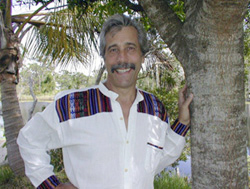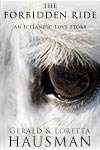

Gerald Hausman on A Brief History of Seven Killings by Marlon James
By Gerald Hausman
Bokeelia, FL, USA

Gerald Hausman
There is a sense of unease when you read a title like the one above. By the heft of the book, I knew it wasn't going to be brief. Somehow I knew as well there were going to be more killings than seven. In both estimations I was right. I also knew from the copy on the cover that Bob Marley was an important figure in the novel and that Jamaica was itself a character.
All these things resonated with me and I began to read. Interestingly, if you have lived in the country where a certain novel takes place, you have a third eye working over the pages. The information is tainted in a sense. I worked to disabuse myself of any previous connection to and time and place and then settled back to enjoy Marlon James's skillful, accurate and elegant prose.
After that I read this novel as if I were chained to it; or perhaps even enchained by it. As I figured, my many years in Jamaica gave me more background than I needed or wanted and though I tried to expunge this, there were moments when a rush of memory engaged that insistent third eye that thinks it knows everything.

To state cases: this is an historical novel that covers the most harrowing events in the neo-colonial ghetto world of Kingston, Jamaica. In a subculture where ruling "dons" are more powerful than feudal kings, we are transported from one manic fiefdom to another. The revolving doors of murder and mayhem open and close, and duppies, or Jamaican ghosts, are narrators as well as street people, assassins, artists, members of the CIA, upper-class Kingstonians, and drug dealers.
Few novels ratchet the tempo as much as this one; James torques it to the max. You will read this with a shaky hand and look over your shoulder often. It pulls you in and keeps you there, a prisoner of the written word. For those interested in Bob Marley and the attempt that was made on his life there is further incentive to read on, but more than anything, for me, it was the ambience of the island, the scents and sounds, the patois, the gritty, grainy, back-a-yard that captivates – if that's the right word. As I have said, you are not captivated so much as captured. You are not reading so much as living. Doing that, truly, in a novel is unusual. It may even give pause for the question – what is a novel? But I leave that conundrum to you.
Links:
Gerald Hausman at Stay Thirsty Publishing
Gerald Hausman - Author & Storyteller







